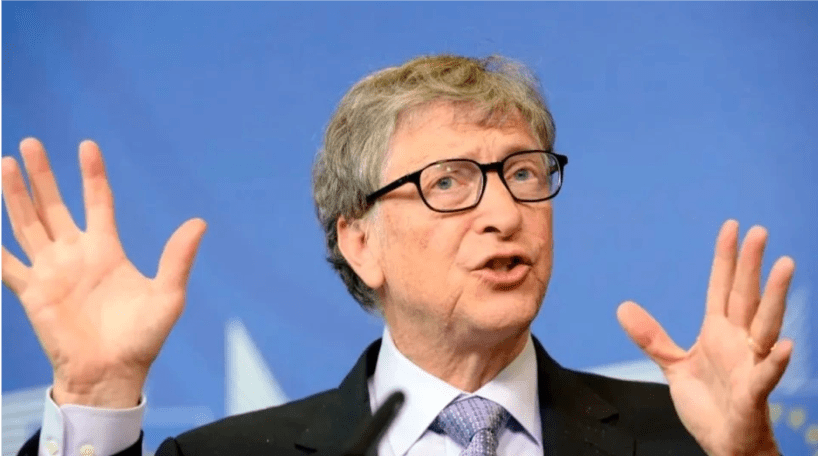
Australia pledges to provide more funds to Pacific island banks to counter China's influence
Australia pledged on Tuesday to increase investment in Pacific island nations, offering A$6.3 million ($4.3 million) to support their financial systems. Some Western banks are cutting ties with the region because of risk factors, while China is trying to increase its influence there. Some Western bankers have terminated long-standing banking relationships with small Pacific nations, while others are considering closing operations and restricting access to dollar-denominated bank accounts in those countries. "We know that the Pacific is the fastest-moving region in the world for correspondent banking services," Australian Treasurer Jim Chalmers said in a speech at the Pacific Banking Forum in Brisbane. "What's at stake here is the Pacific's ability to engage with the world," he said, with much of the region at risk of being cut off from the global financial system. Chalmers said Australia would provide A$6.3 million ($4.3 million) to the Pacific to develop secure digital identity infrastructure and strengthen compliance with anti-money laundering and counter-terrorist financing requirements. Experts say Western banks are de-risking to meet financial regulations, making it harder for them to do business in Pacific island nations, where compliance standards sometimes lag, undermining their financial resilience. Australia's ANZ Bank is in talks with governments about how to make its Pacific island businesses more profitable amid concerns about rising Chinese influence as financial services leave the West, Chief Executive Shayne Elliott said Tuesday. ANZ is the largest bank in the Pacific region, with operations in nine countries, though some of those businesses are not financially sustainable, Elliott said in an interview on the sidelines of the forum. "If we were there purely for commercial purposes, we would have closed it a long time ago," he said. Western countries, which have traditionally dominated the Pacific, are increasingly concerned about China's plans to expand its influence in the region after it signed several major defense, trade and financial agreements with the region. Bank of China signed an agreement with Nauru this year to explore opportunities in the country, following Australia's Bendigo Bank saying it would withdraw from the country. Mr. Chalmers said Australia was working with Nauru to ensure that banking services in the country could continue. ANZ Bank exited its retail business in Papua New Guinea in recent years, while Westpac considered selling its operations in Fiji and Papua New Guinea but decided to keep them. The Pacific lost about 80% of its correspondent banking relationships for dollar-denominated services between 2011 and 2022, Australian Assistant Treasurer Stephen Jones told the forum, which was co-hosted by Australia and the United States. “We would be very concerned if there were countries acting in the region whose primary objective was to advance their own national interests rather than the interests of Pacific island countries,” Mr. Jones said on the first day of the forum in Brisbane. He made the comment when asked about Chinese banks filling a vacuum in the Pacific. Meanwhile, Washington is stepping up efforts to support Pacific island countries in limiting Chinese influence. "We recognize the economic and strategic importance of the Pacific region, and we are committed to deepening engagement and cooperation with our allies and partners to enhance financial connectivity, investment and integration," said Brian Nelson, U.S. Treasury Undersecretary for Counterterrorism and Financial Intelligence. The United States is aware of the problem of Western banks de-risking in the Pacific region and is committed to addressing it, Nelson told the forum's participants. He said data showed that the number of correspondent banking relationships in the Pacific region has declined at twice the global average rate over the past decade, and the World Bank and the Asian Development Bank are developing plans to improve correspondent banking relationships. U.S. Treasury Secretary Janet Yellen said in a video address to the forum on Monday (July 8) that the United States is focused on supporting economic resilience in the Pacific region, including by strengthening access to correspondent banks. She said that when President Biden and Australian Prime Minister Anthony Albanese met at the White House last year, they particularly emphasized the importance of increasing economic connectivity, development and opportunities in the Pacific region, and a key to achieving that goal is to ensure that people and businesses in the region have access to the global financial system.
UAE insurance sector continued to grow in Q4-23: CBUAE
The UAE insurance sector continued to grow in Q4-2023, as reflected by increase in the gross written premiums. As of year-end, the number of licensed insurance companies in the UAE remained at 60, according to the Central Bank of the UAE's (CBUAE) Quarterly Economic Review (Q4-2023). The insurance sector comprised 23 traditional national companies, 10 Takaful national and 27 foreign companies, while the number of insurance related professions remained at 491. The review on insurance sector structure and activity showed that the gross written premium increased by 12.7% Y-o-Y in Q4 2023 to AED 53.2 billion, mostly due to an increase in health insurance premiums by 16.5% Y-o-Y and an increase in property and liability insurance premiums by 18.9% Y-o-Y, while the insurance of persons and fund accumulation premiums decreased by 12.4% Y-o-Y, resulting primarily from decrease in individual life premiums. Gross paid claims of all types of insurance plans increased by 12.8% Y-o-Y to AED 31.1 billion at the end of 2023. This was mainly driven by the increase in claims paid in health insurance by 16.9% Y-o-Y and increase in paid claims in property and liability insurance by 10.9% Y-o-Y, partially offset by the decline in claims paid in insurance of persons and fund accumulation by 2.8% Y-o-Y. The total technical provisions of all types of insurance increased by 8.4% Y-o-Y to AED 74.4 billion in Q4 2023 compared to AED68.6 billion in Q4 2022. The volume of invested assets in the insurance sector amounted to AED 76 billion (60.4% of total assets) in Q4 2023 compared to AED 71.4 billion (59.4% of total assets) in Q4 2022. The retention ratio of written insurance premiums for all types of insurance was 52.9 % (AED 28.1 billion) in Q4 2023, compared to 54.9% (AED 25.9 billion) at the end of 2022. The UAE insurance sector remained well capitalized in terms of early warning ratios and risk assessment. Own funds to minimum capital requirement ratio increased to 335.7% in Q4 2023, compared to 309.3% at the end of 2022, due to an increase in own funds eligible to meet the minimum capital requirements. Also, own funds to solvency capital requirement ratio rose to 221% in Q4 2023 compared to 208.5% in Q4 2022, due to an increase in own funds eligible to meet solvency capital requirements. Finally, own funds to minimum guarantee fund ratio reached to 316.3% at the end of 2023 down from 314.6% a year earlier, due to higher eligible funds to meet minimum guarantee funds. In terms of profitability, the net total profit to net written premiums increased to 6.5% in Q4 2023, compared to 2.9% at the end of 2022. The return on average assets increased to 0.3% in Q4 2023 compared to the 0.1% at the of the previous year.

Diphtheria outbreak in Vietnam kills one person
On the afternoon of July 8, local time, the Vietnamese Ministry of Health issued a notice stating that an 18-year-old girl in the country died of diphtheria. The Ministry of Health asked Nghe An Province and Bac Giang Province to take urgent action to control the epidemic. Diphtheria is an acute respiratory infectious disease caused by Corynebacterium diphtheriae, which is mainly transmitted through droplets and can also be indirectly transmitted by contact with objects containing Corynebacterium diphtheriae. Severe cases may show symptoms of poisoning throughout the body, complicated by myocarditis and peripheral nerve paralysis.

TSX futures rise ahead of Fed chair Powell's testimony
July 9 (Reuters) - Futures linked to Canada's main stock index rose on the back of metal prices on Tuesday, while investors awaited U.S. Federal Reserve Chair Jerome Powell's congressional testimony on monetary policy later in the day. The S&P/TSX 60 futures were up 0.25% by 06:28 a.m. ET (1028 GMT). The Toronto Stock Exchange's materials sector was set to re Oil futures , dipped as fears over supply disruption eased after Hurricane Beryl, which hit major refineries along with the U.S. Gulf Coast, caused minimal impact. Markets will be heavily focussed on Powell's two-day monetary policy testimony before the Senate Banking Committee, starting at 10 a.m. ET (1400 GMT), which can help investors gauge the Fed's rate-cut path. Following last week's softer jobs data, market participants are now pricing in a 77% chance of a rate cut by the U.S. central bank in September. The main macro event for the markets this week will be the U.S. consumer prices data due on Thursday, which can help assess the trajectory of inflation in the world' biggest economy. Wall Street futures were also up on Tuesday after the S&P 500 (.SPX), opens new tab and Nasdaq (.IXIC), opens new tab touched record closing highs in the previous session. In Canada, fears of the economy slipping into recession advanced after the latest data showed that the unemployment rate rose to a 29-month high in June. Traders are now pricing in a 65% chance of another cut by the Bank of Canada, which already trimmed interest rates last month. In corporate news, Cenovus Energy (CVE.TO), opens new tab said it is demobilizing some staff at its Sunrise oil sands project in northern Alberta as a precaution due to the evolving wildfire situation in the area.

Boeing will be fined 3.5 billion yuan for "conspiracy to defraud" in two air crashes. Will the company slide into the abyss?
Taking the initiative to plead guilty to Boeing is not small, but it can avoid being exposed to more problems when it is publicly tried, which is a "minor penalty" for Boeing. So now the families of the crash victims are very opposed to the move, demanding that the trial continue to be open. But after all, Boeing is America's oldest industrial son, whether it is Trump or Biden, and finally have to gently put down, give a chance. The Justice Department had been seeking a guilty plea from Boeing as early as May, when it launched the investigation. After all, if you plead guilty, you only need to pay a fine, and if you really go to court, you don't know how many quality problems Boeing will be exposed by your witnesses. Boeing also knew it had too many flaws, and paying a $243.6 million fine and bringing in a third party to monitor its compliance for three years, totaling more than $400 million in additional expenses, is small change for Boeing. Given Boeing's style in the past few years, this fine may not even force Boeing to tighten production line management. Just this kind of "reconciliation" that completely excludes the victims of the crash can not get the families to agree. Paul Cassell, an attorney for the victims' families, said he plans to ask the federal judge overseeing the case to reject the agreement and "hold this case to an open trial so that all the facts of this case can be presented in a fair and public manner before a jury." The demand is reasonable, but the US judge will most likely side with Boeing.




